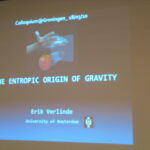Can the Existence of God Be Demonstrated? Exploring Strong Arguments
Introduction: Can We Prove God’s Existence?
The question of whether God’s existence can be demonstrated has puzzled humanity for centuries. While some seek mathematical certainty, others argue that there are philosophical and rational explanations that make belief in God plausible. In this article, we explore different arguments for the existence of God, highlighting reasons that make it more probable than not that such a being exists. These arguments offer insights from cosmology, morality, and personal experience, all converging into a cumulative case for God’s existence.
What Does It Mean to “Demonstrate” God’s Existence?
When we ask whether God’s existence can be demonstrated, it’s important to clarify what we mean by “demonstrate.” Unlike mathematical proofs, arguments for God’s existence may not compel belief with absolute certainty. Instead, they aim to provide reasonable grounds for believing in God. These arguments often consist of premises that are more plausible than their opposites and lead to logical conclusions about the existence of a supreme being. Thus, the case for God’s existence is built on rational support rather than undeniable proof.
The Argument from Existence: Why Is There Something Rather Than Nothing?
One of the first and most fundamental questions that theists often ask is, “Why does anything at all exist?” The argument here posits that God is the best explanation for why there is something rather than nothing. It suggests that the existence of the universe, and all of reality, requires a cause or reason. This reasoning leads to the conclusion that there must be a transcendent cause—something beyond the material world—to explain why anything exists. The answer, according to this line of thinking, is God.
God as the Explanation for the Origin of the Universe
Closely related to the argument from existence is the argument for the origin of the universe. Scientific discoveries have shown that the universe had a beginning, often referred to as the Big Bang. This discovery supports the idea that the universe is not eternal and must have had a cause. The argument here is simple: whatever begins to exist must have a cause. The universe began to exist, so it must have a cause. The most plausible explanation for that cause, proponents argue, is God, a being outside time and space who brought the universe into existence.
The Fine-Tuning Argument: The Universe for Intelligent Life
Another powerful argument for the existence of God is based on the fine-tuning of the universe. The constants and quantities in the universe are precisely set in such a way that intelligent life is possible. The probability of this fine-tuning occurring by chance is astronomically low, which leads many to conclude that the universe was designed with purpose. Supporters of this argument claim that neither random chance nor physical necessity can adequately explain this level of precision. The best explanation, they argue, is that the universe was intentionally designed by an intelligent creator—God.
Objective Morality: God’s Role in Moral Values and Duties
The argument from objective morality states that if moral values and duties exist independently of human opinion, then God must exist. This argument asserts that there are certain moral facts—such as the wrongness of murder—that are true regardless of what people think. These objective moral truths, theists argue, point to a moral lawgiver. If there is a standard of goodness that applies universally, it requires an ultimate source, and that source is God. Without God, morality would be subjective and relative, which contradicts our sense of right and wrong as being universal and binding.
The Historical Case for Jesus of Nazareth
Another compelling argument for God’s existence comes from the historical figure of Jesus of Nazareth. Many theists argue that Jesus’ radical personal claims, miracles, and resurrection provide evidence for God’s existence. If Jesus was indeed raised from the dead, it would serve as a confirmation of his divine authority and the truth of his teachings, including his claims about God. While historical arguments may not convince everyone, they offer a unique perspective on the case for God’s existence, grounded in documented events.
The Teleological Argument: Design in the Universe
The teleological argument, or the argument from design, is closely related to the fine-tuning argument but focuses on the complexity of the universe. The universe exhibits such intricate structures and systems that many find it implausible to attribute them to chance or mere physical processes. From the structure of galaxies to the complexity of biological life, this argument posits that the best explanation for this complexity is intelligent design. Just as we infer a designer behind a complex machine, we can infer a creator behind the complexity of the universe.
Understanding the Concept of God: A Being that Necessarily Exists
Some arguments for God’s existence center on the very concept of God. Once we properly understand what it means for God to exist, it becomes clear that God’s existence is metaphysically necessary. According to this view, it is impossible for God not to exist, because God, by definition, is the greatest conceivable being. If we can conceive of such a being, then that being must exist in all possible worlds, including ours. This argument, while more abstract, adds another layer of support for the existence of God.
A Personal Experience with God
Beyond philosophical and scientific arguments, many people claim to have personal experiences with God. These experiences can be powerful, leading individuals to believe in God without needing formal arguments. While personal experience may not be an argument in the traditional sense, it serves as a testament to the reality of God for those who have had such encounters. Knowing God personally, many theists argue, is the ultimate proof of God’s existence—something that transcends intellectual arguments.
Conclusion: A Cumulative Case for God’s Existence
The existence of God may not be proven with mathematical certainty, but there are many compelling reasons to believe in God. From the argument from existence, the fine-tuning of the universe, and objective morality, to the historical case for Jesus and the concept of God as a necessary being, these arguments together form a cumulative case that makes belief in God reasonable and more probable than not.
If you’re interested in exploring these ideas further, I encourage you to watch this video link for a deeper dive into the cosmological arguments for God’s existence.





